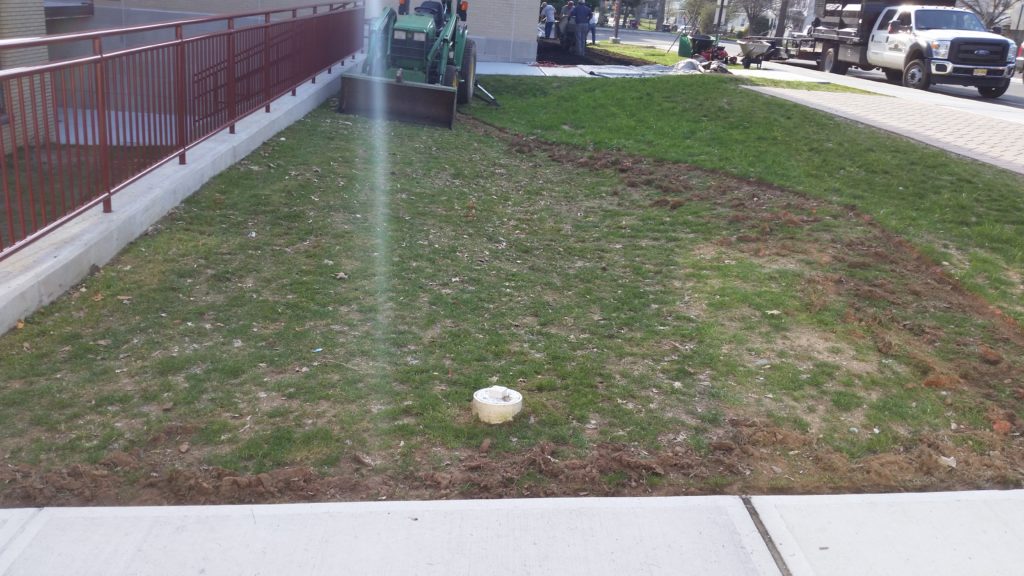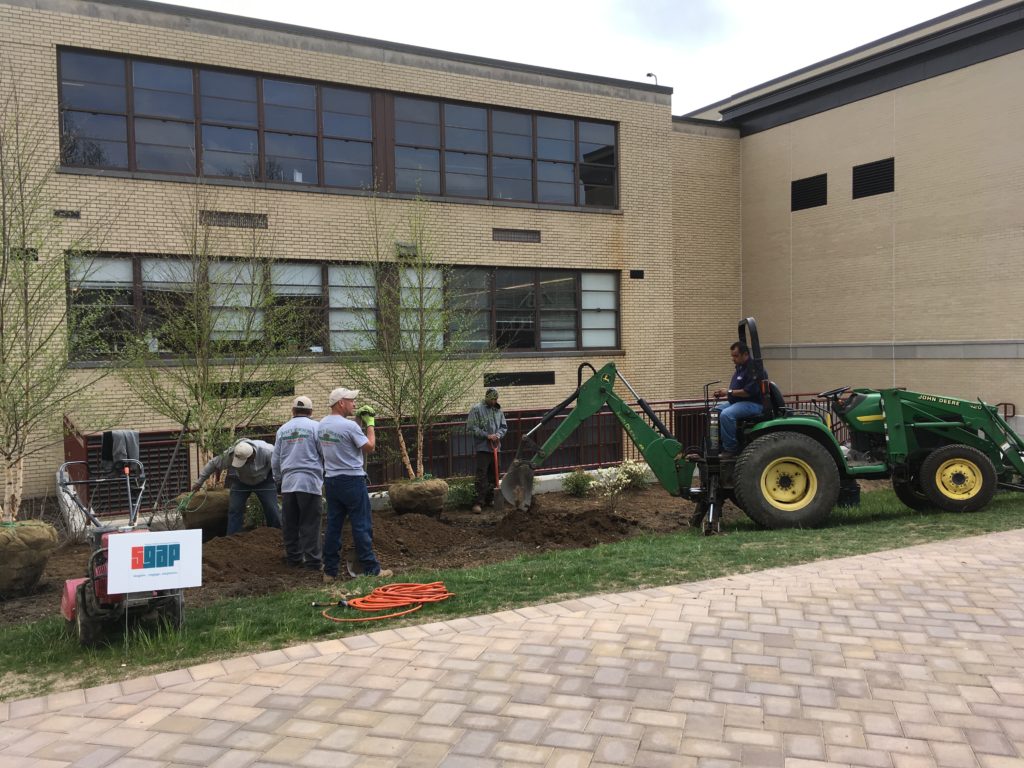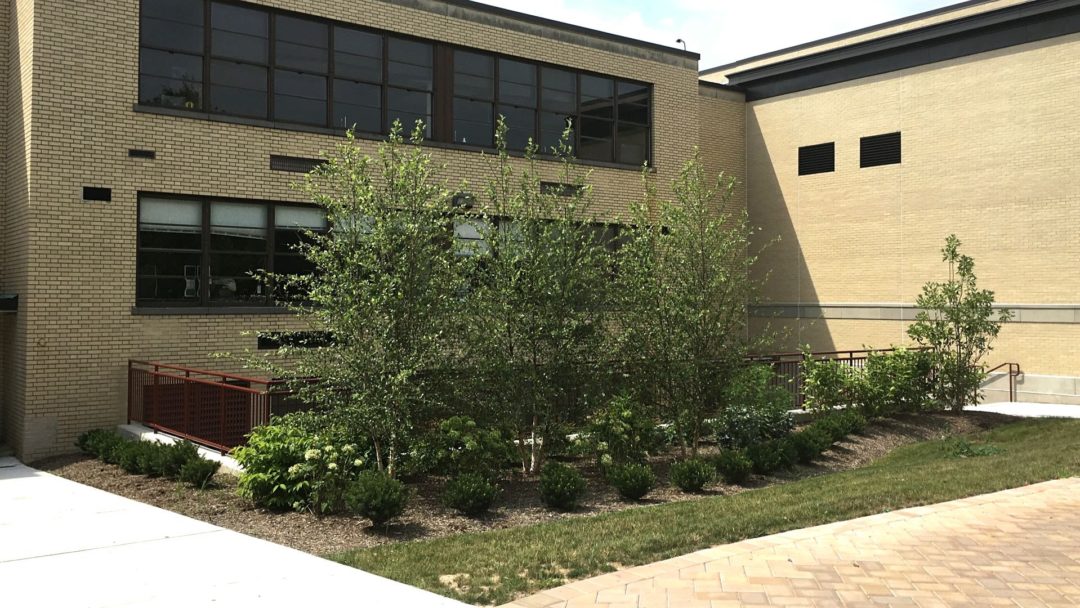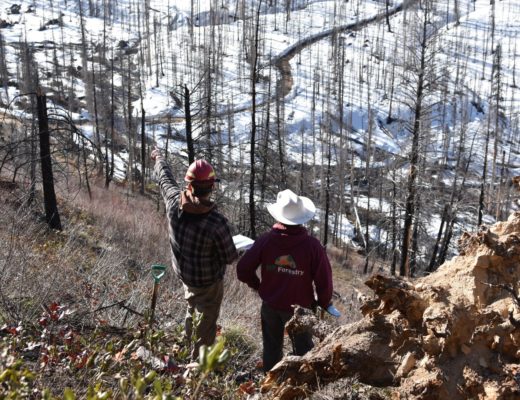TD Green Streets supports innovative practices in community forestry. Through the program, municipalities are eligible to receive one of ten $20,000 grants in support of local forestry projects in low- to moderate-income (LMI) neighborhoods. Guest post by Kristin Ace, Chairperson of Morristown Shade Tree Commission, 2017 TD Grant recipient.
The Morristown Shade Tree Commission partnered with the Morris School District and City Arborist for a school tree planting project that would add trees to The Lafayette Learning Center Preschool and the Morristown High School. The tree planting was part of the town’s Arbor Day celebrations where the public was invited to help plant.
The TD Bank Grant helped us plant two large gardens and 21 trees in areas that would benefit not only our town and residents but improve children’s learning. It has been documented that children learn better when they are surrounded by nature, so enriching their environment with trees and flowers will enable them to become better students.

The planting project would also help us raise awareness on the importance of trees and shrubs. The best way to inspire a love for nature is to start teaching it at a young age. By having students learn every aspect of tree planting and care, from picking a species to putting it in the ground and everything in between, it becomes second nature to them.
They learned how to plant and care for a garden. And now they understand why the practices we taught them are important to our well-being. By having high school students teach what they learned to the preschoolers, they not only become advocates, but, they get to experience the wonder and delight of a child’s view, which strengthens their own experience.
We wanted to be inclusive and reach as many people as we could through the project, so every piece of information that we shared was written in English and Spanish. It was another way for us to bridge the gap and build community.

But planting a school garden doesn’t come without its challenges, like convincing parents the importance of the trees. Most did not understand why caring for trees before, during, and after they are planted leads to healthy trees. It prompted opportunity for education, like explaining that we can’t just throw a tree or shrub in the ground and walk away. We had to emphasize that planting a tree in an urban environment is not the same as a tree growing in a forest and that a tremendous amount of care is needed.
Planting trees and gardens at schools helps beautify the community. The newly planted trees will clean the air. They will clean the water runoff from the buildings with their roots. They not only enrich the students and residents’ lives, they enrich the earth that they now inhabit. As the gardens start to flower, they will attract bees, birds, and butterflies — all of which we need to pollinate food gardens in the community.
The scenery will bring an aura of peace to the area. Personally, it eases my soul to watch the birds, insects, and wildlife flit among the trees and flowers. If I feel stress from the outside world, I go into nature to quiet my mind and bring me to a place of serenity. So, I imagine that for the high school students who are under great pressure, bringing nature to them is a relief. To now be surrounded by greenery, singing birds, and blooming flowers when before it was a barren concrete landscape, is a gift that gives a million times over the cost to put it all together.
One of the most rewarding parts of the project was that even though it was about education, no one had to teach the preschool children to be happy about trees. They understand that to the core of their being. Watching them dance, hug, and sing to the trees was delightful beyond measure. To bear witness that kind of joy and appreciation was the best part of the whole experience.




